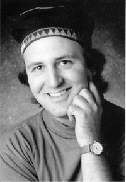conceptual POETRY and ITS others
Just a brief post-symposium note.
CONCEPTUAL POETRY AND ITS OTHERS concluded yesterday evening after two and a half days of readings, by Charles Bernstein, Tracie Morris, Kenny Goldsmith, Craig Dworkin, Christian Bök, Cole Swensen, and Caroline Bergvall. Marjorie Perloff gave the keynote address and moderated two panels, including one in which I was a panelist along with Linda Reinfeld, Jesper Olsson, Brian Reed, Marie Smart, and Vanessa Place. Tenney Nathanson moderated a panel that included all of the poets who gave readings. For the complete schedule and list of participants you can visit the Poetry Center's page with the schedule.
This was a terrific symposium, focusing attention not on relatively recent works in poetry that are constituted primarily by "other" materials, i.e. where the creative works frame something that already exists, at least to some degree. Thankfully, though, there was no movement to define such works, rather to expand the field of creative language work in general and to consider some exciting works within the field. From Kenneth Goldsmith's insistence on "the uncreative," to Christian Bök's presentation of a grid that divided all poetry into four squares, depending on positives and negatives for "intentionality" and "expressivity," to Charles Bernstein's before-the-inquisition "recantation" of all previous positions and activities he has taken that were in any way opposed or critical of the works found in books by the "accessible poets," to Caroline Bergvall's magnificent soundings of multi-lingual work that is generated from an investigation of Geoffrey Chaucer's work, to Cole Swensen's call to consider ekphrasis as writing in relation to visual art that is not about the subject of that visual art (and in general, a critique of subject-based writing as that in which subject dominates and textural and other qualities of poems fade), to Tracie Morris's wondrous and danceable presenting of various hip hop work that is both conceptual and socially coded in a rich variety of ways, and of her consideration of styles of black oratory and address in which we must consider such matters as the preaching style of Rev. Jeremiah Wright, to Craig Dworkin's call to the audience to consider the ethical, social, and political import and responsibilities of conceptual poetry (and by implication, of poetry in general), this was a mind-expanding and inspiring symposium, a highlight of my 24 years in Tucson.
There was also an intriguing presentation of visual poetry at the UA Poetry Center Library during the symposium, with works by Peter Cicciariello, Julie Willms, David Baptiste-Chirot, and others.
The University of Arizona Poetry Center directors and staff are to be commended for presenting such a daring and exciting symposium. Marjorie Perloff also deserves great credit as a key planner of the symposium, which focused not on her ideas about the poets, but squarely on the work of poets present and on related works taking place in our time as well as in the last few decades, with important precedents also garnering their time, such as the work of Marcel Duchamp and Walter Benjamin.
There is a report on Charles Bernstein's recantation, by Kenny Goldsmith, on the Poetry Foundation web site. The UA Poetry Center presented streaming audio of Perloff's keynote address and of the Nathanson-moderated panel, but these are no longer accessible from the Center's web page. The Center also recorded (audio & video, I believe) the entire proceedings, which one hopes will be made available shortly. Apparently within two weeks there will be a symposium site (most likely accessible from within the UA Poetry Center's main site) that will include audio, video, files of talks and panel presentations, and more. Stay tuned to this blog and I'll post whenever I know that site is up and running.
My symposium days will actually end today, in an hour or so, after I have breakfast with Craig Dworkin.


2 Comments:
Hi. When audio is made available, I would like to ask permission to air selections on my radio program, Wordsalad, here in Madison, Wis. www.wordsalad.wordpress.com
Paul Baker
Paul,
I think that would be great. But I was just a participant and now a reporter, I had nothing to do with organizing the conference. You should contact the Poetry Center at the University of Arizoan. Google that, and you'll get the site. If you act fast, Frances Sjoberg is the person to ask, but she's leaving there for good after tomorrow. Otherwise, you might ask Gail Browne or Renee Angle.
good luck,
charles
Post a Comment
<< Home